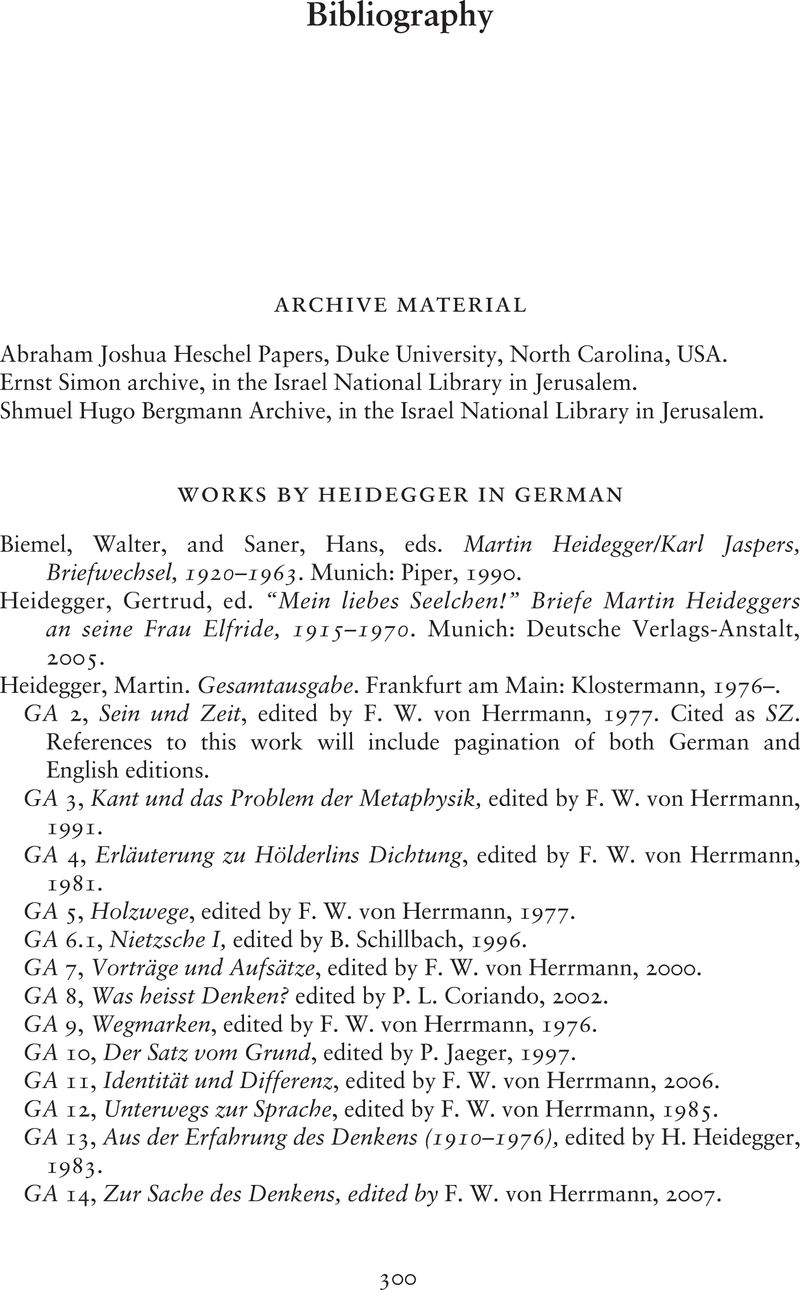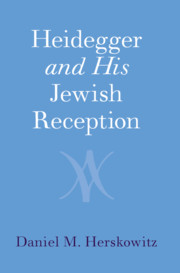Book contents
- Heidegger and His Jewish Reception
- Heidegger and His Jewish Reception
- Copyright page
- Dedication
- Contents
- Preface
- Acknowledgments
- 1 Herkunft and Zukunft: Heidegger, Christianity, and Secularization
- 2 Kant’s Legacy and New Thinking: Heidegger, Cassirer, and Rosenzweig
- 3 A Christian Anthropology? Early Jewish Readings of Sein und Zeit
- 4 Dwelling Prophetically: Martin Buber’s Response to Heidegger
- 5 The Destruktion of Jerusalem: Leo Strauss on Heidegger
- 6 God, Being, Pathos: Abraham Joshua Heschel’s Theological Rejoinder to Heidegger
- 7 Uprooting Paganism: Emmanuel Levinas Faces Heidegger
- Conclusion Which God Will Save Us? Heidegger and Judaism
- Bibliography
- Index
- References
Bibliography
Published online by Cambridge University Press: 24 September 2020
- Heidegger and His Jewish Reception
- Heidegger and His Jewish Reception
- Copyright page
- Dedication
- Contents
- Preface
- Acknowledgments
- 1 Herkunft and Zukunft: Heidegger, Christianity, and Secularization
- 2 Kant’s Legacy and New Thinking: Heidegger, Cassirer, and Rosenzweig
- 3 A Christian Anthropology? Early Jewish Readings of Sein und Zeit
- 4 Dwelling Prophetically: Martin Buber’s Response to Heidegger
- 5 The Destruktion of Jerusalem: Leo Strauss on Heidegger
- 6 God, Being, Pathos: Abraham Joshua Heschel’s Theological Rejoinder to Heidegger
- 7 Uprooting Paganism: Emmanuel Levinas Faces Heidegger
- Conclusion Which God Will Save Us? Heidegger and Judaism
- Bibliography
- Index
- References
Summary

- Type
- Chapter
- Information
- Heidegger and His Jewish Reception , pp. 300 - 338Publisher: Cambridge University PressPrint publication year: 2020

